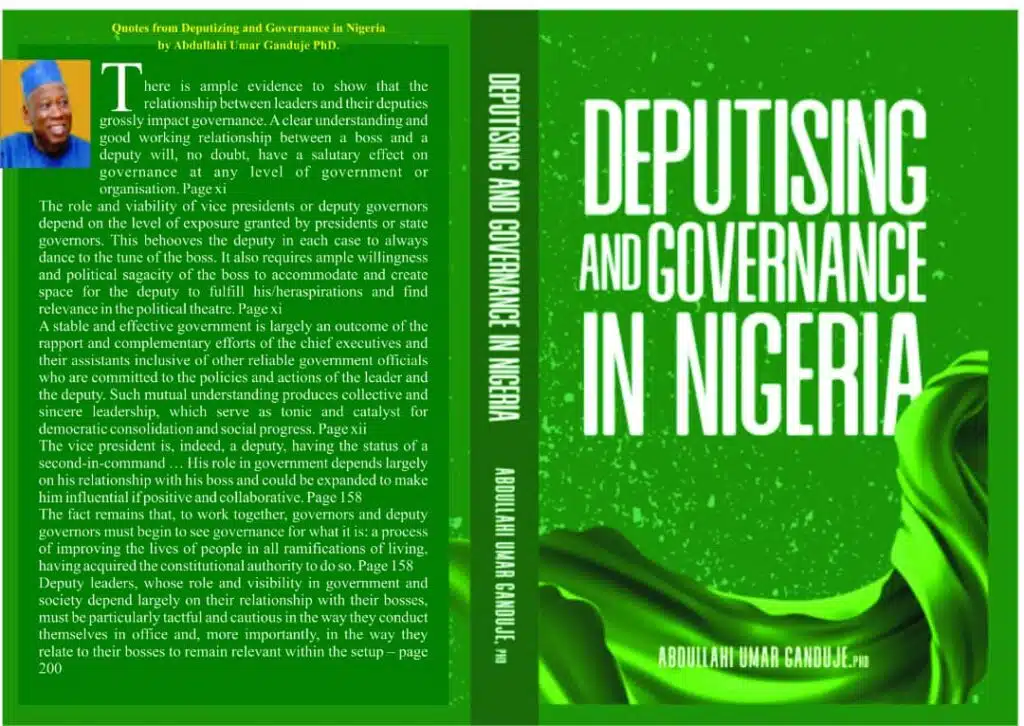The choice of running mate for Asiwaju Bola Ahmad Tinubu, the All Progressives Congress (APC) candidate in the in the 2023 Presidential election is making waves because the potential pick comes from the North West state of Kano, the political state that has consistently been giving the party the highest number of votes.
As two term deputy governor and particularly during the 2011, 2015 and 2019 presidential elections, Ganduje’s Kano remains the biggest support base of the APC. And with him as Vice President, the 2023 election will just be a walk over.
I came to realise the potential of Governor Ganduje to be a successful Vice President when I came across a book he authored titled: “Deputizing in Governance in Nigeria”, in which he shares with readers the topic of deputizing, the intrigues, the complexities and how to ensure a successful working relationship with his principal.
In the book, Dr. Ganduje posits that the role and viability of vice presidents or deputy governors depend on the level of exposure granted by presidents or state governors.
And I quote from the book: “A stable and effective government is largely an outcome of the rapport and complementary efforts of the chief executives and their assistants inclusive of other reliable government officials who are committed to the policies and actions of the leader and the deputy. Such mutual understanding produces collective and sincere leadership, which serve as tonic and catalyst for democratic consolidation and social progress.”
The vice president is, indeed, a deputy, having the status of a second-in-command … His role in government depends largely on his relationship with his boss and could be expanded to make him influential if positive and collaborative.
The fact remains that, to work together, governors and deputy governors must begin to see governance for what it is: a process of improving the lives of people in all ramifications of living, having acquired the constitutional authority to do so.
Deputy leaders, whose role and visibility in government and society depend largely on their relationship with their bosses, must be particularly tactful and cautious in the way they conduct themselves in office and, more importantly, in the way they relate to their bosses to remain relevant within the setup.”
No doubt, deputizing in governing the affairs of a highly cosmopolitan state, a mini Nigeria and home of radical politics with a sophisticated population is a herculean task that requires administrative and political experience.
A two- term deputy governor and now serving his second and last tenure as Chief Executive, Governor Abdullahi Umar Ganduje of Kano state has over the last two decades garnered the requisite experiential to serve as Vice President of the Federal Republic of Nigeria just as he was deputy governor or second in command.
A highly detribalised Nigerian that see people as one, Ganduje continued to work tirelessly for the unity and indivisibility of the Nigerian nation and to build bridges across the various divides.
An astute politician with political dexterity, strong administrative acumen and good team spirit, he successfully governed a highly cosmopolitan and political state like Kano.



